
Bill Wilson’s depression
Alcoholics Anonymous founder Bill Wilson's depression
“Turning the impossible into possible”

Alcoholics Anonymous founder Bill Wilson's depression
By: Dr. Mizrachi Avraham, founder of Taotherapy Rehab Thailand
Bill's struggle with depression
In Bill’s struggle with depression, he seeks help outside the Twelve Steps. What he finds in Jungian psychotherapy and his relationship with Father Ed Dowling changes his perspective on the Twelve Steps. After returning from a three-month tour across the United States, during which he and Lois visited most of the existing AA groups, Bill collapses into a deep depression and remains depressed for two years. He experiences several such episodes until 1953. Bill’s depression troubles many in AA, some of whom blame Bill for not working the Steps. Bill himself also wonders why he failed to practice the Steps. According to the official AA biography of Bill:
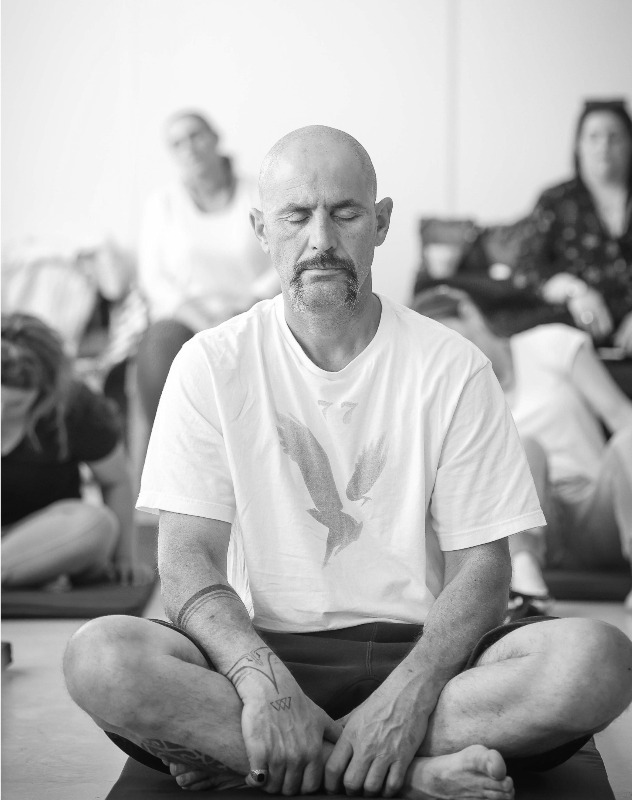
"Bill believed that his depressions were perpetuated by his failure to work the Twelve Steps properly"
“Bill believed that his depressions were perpetuated by his failure to work the Twelve Steps properly. ‘I was once quite hard on myself, blaming myself for the inability to practice the program’s “rigorous honesty” in certain areas of my life.'”
Many are unaware that Bill was likely suffering from post-traumatic stress from World War I, in which he participated. Additionally, the abandonment by his parents at a very young age and the death of his partner at age 14 were among the many traumas that Bill carried within him, and these were likely the foundation for the deep depression he experienced periodically over seven years.
In Taotherapy, after 32 years of experience, we know that the injured part often reveals itself many years after sobriety in the recovery journey. It takes time for the subconscious to release certain contents until the soul is ready to absorb these difficult materials. It is important to remember that this is part of the path, and it means that the person on their spiritual journey is supposed to encounter these deep contents after the initial enthusiasm in the first years of recovery.
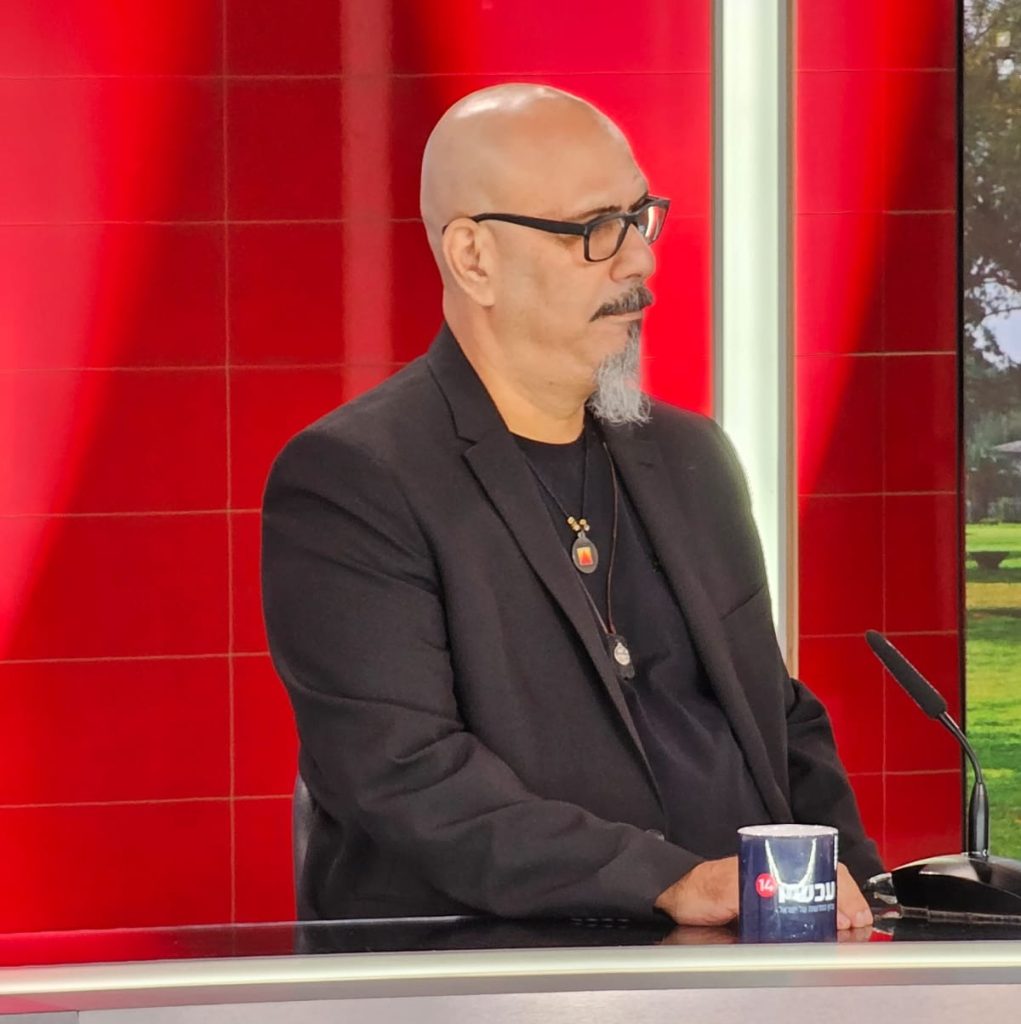
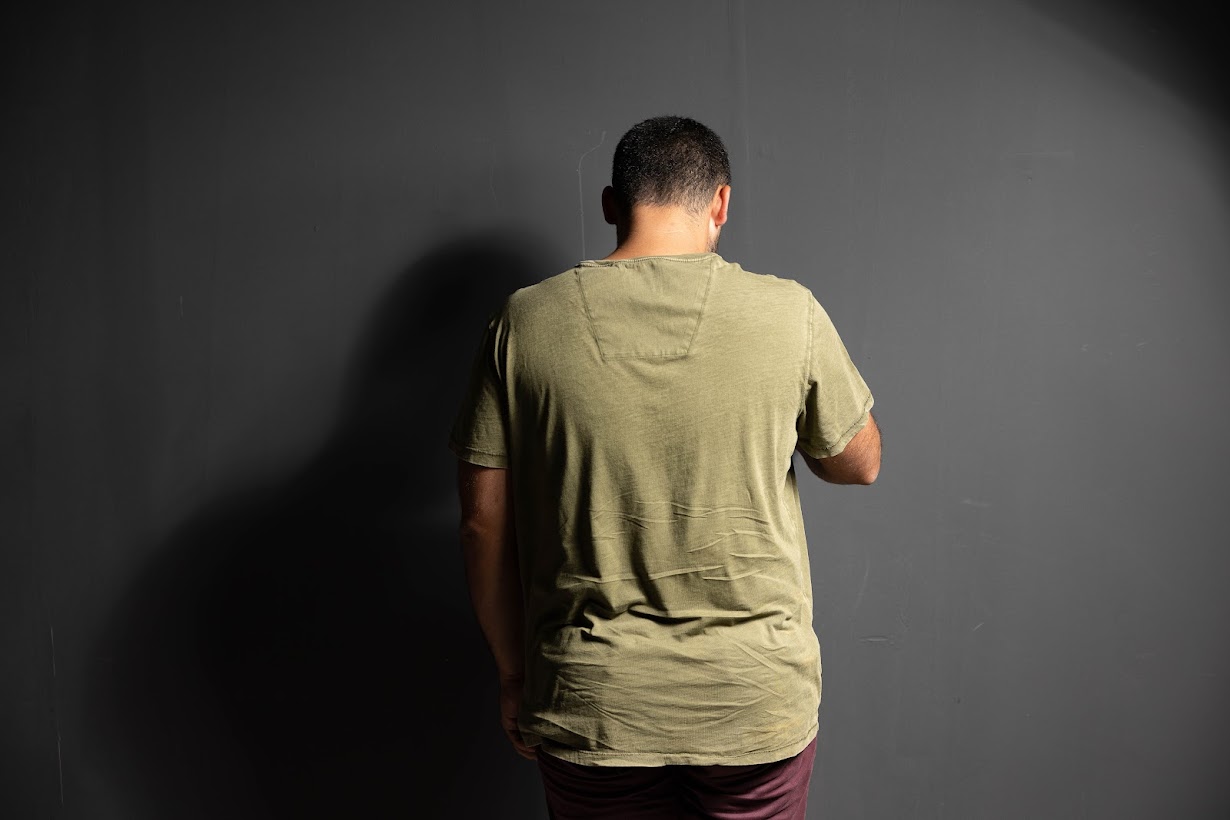
Bill’s depression, which lasted from around 1940 to 1953
Bill Wilson, the founder of Alcoholics Anonymous (AA), was a complex and inspiring figure whose influence extends far beyond the realm of addiction. Despite his tremendous success in establishing the movement that has helped millions of people worldwide, Bill himself grappled with deep internal struggles, chief among them being a profound and prolonged depression.
Bill’s depression, which lasted from around 1940 to 1953, was not merely a psychological symptom but almost a form of addiction in itself. It largely stemmed from Bill’s dependency on the approval and validation of those around him and his inner demand that they fulfill his emotional needs. In this sense, he continued to be “addicted,” only this time not to alcohol but to the opinions of others.
Realizing that the work of the Twelve Steps alone was not enough to overcome his depression,
Realizing that the work of the Twelve Steps alone was not enough to overcome his depression, Bill sought psychotherapeutic help. This therapy, combined with deep spiritual insights he gained from figures like Father Ed Dowling, led him to a revolutionary understanding—that he needed to find the roots of satisfaction and security within himself, rather than in his expectations of the external world.
Bill concluded that depression should be seen as a kind of illness, similar to addiction, requiring a focused and determined recovery process. He even foresaw the future emergence of a “Neurotics Anonymous” movement that would help people with mental difficulties using principles similar to those of the Twelve Steps. At the same time, Bill believed that in order to truly heal, a person must also confront deep “emotional wounds” from the past, which they tend to suppress.
The core of the process, according to Bill, was achieving “emotional sobriety”—a state of internal freedom and release from dependency on external factors. The key to this is nurturing a deep and personal connection with a Higher Power, which would serve as the true source of one’s sense of worth and completeness. On the interpersonal level, Bill emphasized the importance of shifting the focus from “taking” to “giving”—to love and give to others unconditionally, rather than expecting them to provide something that is lacking within us.
Bill Wilson’s inner journey serves as a powerful reminder that true recovery goes far beyond merely giving up an addictive substance. It requires an honest examination of our personality traits and a willingness to confront the most hidden fears and deficiencies within us. This process demands courage, self-honesty, and unwavering dedication—but the fruits it yields, in terms of inner freedom and deep peace, are immeasurable.
Bill Wilson’s legacy, therefore, lies not only in his tremendous contribution to the field of addiction; it is also rooted in a broader and deeper understanding of the human essence, with all its internal struggles and transformations. This perspective invites each and every one of us to embark on a courageous inner journey, with the understanding that our true power already lies within us—and that the potential for change is limitless. Aldous Huxley called him the greatest social architect of our time, and he was among the top 20 out of 100 heroes and icons of the 20th century. But to emerge from his own madness, Bill Wilson would have to forge a path that no one had walked before.
Bill faced a dilemma once he sobered up: the only place where his fellow alcoholics were recovering was the Oxford Group, an evangelical sect whose explicit goal was to convert people to Christianity. The group also believed that alcoholism was a result of moral failure and that drinking was a sin. But Bill had learned from his doctor (Dr. Silkworth) that alcoholism was a disease. This news was especially liberating for him because he didn’t believe that alcoholics were “sinners” per se. Bill had no problem with the concept of God; he himself had undergone a spiritual experience that he believed had influenced him. But when he began talking to other alcoholics about sobriety, he could see that the beliefs of the Oxford Group were hindering the recovery process.
Bill found himself tempted in his newfound sobriety when he passed by a bar one night, so he began making phone calls to members of the Oxford Group to try to find alcoholics he could talk to.
He discovered that these conversations helped his own sobriety and realized that only by “giving it away” could he keep it. One of these calls led him to “Dr. Bob,” who would become the co-founder of AA. When talking to Bob, Bill’s approach was to help him make a complete surrender, or as he called it, a “collapse of the ego at depth,” understanding that the ultimate outcome of his alcoholism would be life or death. Eventually, Bill and Bob broke away from the Oxford Group but retained the “steps” that would later become the “Twelve Steps” of Alcoholics Anonymous. The Oxford Group would fade away, while AA and its partner programs dealing with gambling, sex, and drugs would flourish with millions of members worldwide. Why?
History, particularly regarding Bill Wilson, shows us that it is neither helpful nor productive to view compulsive behavior or depression as moral failures or a lack of willpower. As Dr. Silkworth put it, it’s “a physical allergy combined with a mental obsession.” Bringing the obsession into the light in a non-judgmental forum is the key to recovery. This formula has transformed everything from hoarders to debtors.
Bill doesn't work the 12 steps
If we take this wisdom, we can see that “challenging” someone to quit smoking is like challenging someone to stop having diabetes. “Come on,” someone might say, “go on a diet, I challenge you to lose 50 pounds,” which might work for a few months only to see the weight come back. Why? Because there’s a disease at work here; it’s not a matter of flipping a switch and changing behavior. But the disease, once the underlying causes are illuminated, can be halted.
Or what about depression? Now, there’s a misunderstood disease. How many articles do we read about how depression is something you can think your way out of to a positive outlook? For Wilson, he suffered deeply from depression after AA was up and running, and people accused him of “not working the program.” But depression functions like addiction, as many of us in recovery can attest, in that it’s also a disease that has its own unique recovery process. Bill didn’t just abandon AA. Eventually, he sought treatment from a Jungian therapist and briefly corresponded with Carl Jung. Bill wrote to Jung to thank him for guiding a friend of his towards a spiritual solution to his drinking problem. This actually led Bill to his own spiritual experience. Jung wrote back, affirming his belief that addiction is a “spiritual thirst for wholeness.”
The one thing Bill didn’t do was become a megalomaniac. His stepping back from leadership sets AA apart from all other movements to help alcoholics. He turned it into a representative democracy and refused to control it. He also wrote into the program’s traditions that they would not be changed, and that the public relations policy would be “attraction rather than promotion.” It says a lot that a fellowship of millions would grow solely through attraction.
Father Ed Dowling will change his perspective on the steps
In Bill’s struggle with depression, he seeks help outside of the Twelve Steps. What he finds in psychotherapy and his relationship with Father Ed Dowling changes his perspective on the Steps.
After returning from a three-month tour across the United States, during which he and Lois visited most of the existing AA groups, Bill collapses into depression and remains depressed for two years. He suffers from several such episodes until 1953. Bill’s depression troubles many in AA, some of whom blame Bill for not working the program. Bill himself also wonders if he failed to practice the Steps. According to the official AA biography of Bill:
Bill believed that his depressions were perpetuated by his failure to work the AA Steps… “I was once quite harsh on myself, blaming myself for the inability to practice the program in certain areas of my life.”
According to Tom P., when working with Bill on the Twelve Steps and Twelve Traditions, Bill was often overwhelmed by the guilt and remorse he felt as a result of his infidelities and the turmoil his affairs caused within the community. Tom, who tried to write about the need for alcoholics to practice “rigorous honesty,” accused Bill of falling into terrible self-deception. The result was those days when he was so despondent that he could not even lift his head from his desk.
Bill may have seen his depression as a result of his failure to work the Twelve Steps, but he didn’t turn to Stepwork to get back on his feet. This may have been partly due to the influence of Father Ed Dowling.
Bill meets Dowling when the man knocks on his door in 1940. At that time, Bill was down and out, but he was still in a four-year period where he suffered from serious depression. Dowling informs him that he sought Bill out to discuss the similarities between the exercises of St. Ignatius and the Twelve Steps. During their conversation, Bill confesses his personal struggles.
Father Dowling, the author of an article titled “How to Enjoy Being Miserable,” gives Bill a new perspective on depression.
Father Ed quoted to him: “Blessed are those who hunger and thirst.” When Bill asked him if he would ever find any satisfaction, the older man told him to go deeper into the program, saying, “Never. Never.” You, Bill, are supposed to be a person who keeps reaching and working spiritually. In your reaching, you will find God’s purposes for you, deeply hidden in your heart.
Accepting this perspective meant that Bill could see his deepening melancholy not as a result of his failure to apply spiritual principles but as a sign of his spiritual depth and giftedness. According to Dowling, God had blessed Bill with the longing and despair that caused his suffering but would also lead Bill to great things. The solution for Bill, therefore, was not to search deeper for moral shortcomings and confess them, but to keep going and accept the suffering as an inevitable fact. Bill does just that for four years until his depression becomes unbearable, and he seeks help in psychotherapy.
In 1943, Bill enters therapy with Henry Tiebout, who specialized in treating alcoholics and was familiar with AA. Tiebout’s diagnosis of Bill was that:
Both in his active alcoholism and in his current sobriety, he was trying to live out the grandiose, infantile demands of “His Majesty the Baby.”
This assessment reflects Tiebout’s view of alcoholics in general. The following year, Bill switches therapists and begins seeing Frances Weeks, a Jungian. Weeks’s opinion of Bill was that his role in AA caused him to neglect his personal needs.
Bill writes in a letter to a friend about this insight:
It can be satisfying to live my life for others, but it can be nothing but disaster to live my life for others as they think I should live it. The extent to which AA and the individual within it dictate my choices is really astonishing. Things that are paramount to me (even for AA’s good) are not realized.
Bill continues therapy with Weeks until at least 1949.
In one of his first letters, Bill suggests:
Bill’s experience in psychotherapy had an impact on his understanding of recovery and Step work. In two letters written in 1956, Bill suggests a means of applying psychotherapy to AA principles.
One day, we might invent some common denominator for psychotherapy that neurotics could use on each other. The idea would be to expand AA’s moral inventory to a deeper level, making it an inventory of mental defects. I suppose one day there will be a Neurotics Anonymous, and indeed, they will do all of this.
In the second letter, Bill suggests:
An inventory of mental defects, actual episodes: inferiority, shame, guilt, anger, and reliving (them) in our minds to reduce them.
The ultimate result of Bill’s relationship with Father Ed Dowling and psychoanalytic therapy is that Bill distances himself from the religious conversion view of recovery and instead embraces a psychological view of recovery. Bill’s psychological view greatly influences his thinking as he writes the Twelve Steps and Twelve Traditions, and thus, it also influences the future practice of the Twelve Steps.
You need to reach emotional sobriety:
Bill Wilson: Key Points – A Journey of Recovery and Spiritual Awakening
The founder of Alcoholics Anonymous (AA), Bill Wilson, was an extraordinary individual whose influence extended far beyond the realm of addiction. He was a complex, multifaceted figure whose tremendous success in establishing the movement that helped millions of people worldwide escape the clutches of alcoholism was just one aspect of his fascinating life story. In fact, Bill himself struggled for many years with deep and prolonged depression, which presented him with challenges no less complex than the addiction itself.
Depression: A Disease or an Addiction?
Bill’s depression, which began in 1940 and persisted until around 1953, was much more than just a troubling psychological symptom. Bill gradually realized that it was actually a kind of addiction in itself—not to an external chemical substance, but to destructive patterns of thinking and feeling. The root of the problem, as he discovered, lay largely in the deep dependency he had developed on the approval and validation of those around him. Bill, who found himself constantly “needing” affirmation and support from others, essentially entered the same vicious cycle of compulsive expectation that he had tried to escape when he was addicted to alcohol. In a profound sense, despite AA’s tremendous success, he continued to be addicted—this time, to the opinions of others.
Seeking Solutions Beyond the Twelve Steps
When he realized that the work of the Twelve Steps alone, despite its immense importance, did not fully address the emotional turmoil he was experiencing, Bill decided to seek professional help in the form of psychotherapy. The therapy, which lasted a long time, helped him deepen his awareness of the destructive patterns in his perceptions and behavior. At the same time, Bill drew empowering spiritual insights from his encounters with figures like Father Ed Dowling, who shed new light on the nature of human suffering and the path to liberation from it. Gradually, Bill came to a revolutionary understanding—that the source of the satisfaction, security, and wholeness he so longed for was within him and not in any external thing, including the validation of others or any achievements.
Recovering from Depression: A Process Parallel to Recovery from Addiction
Bill Wilson developed an innovative approach to depression, seeing it as a disease in its own right—akin to addiction to addictive substances. He understood that to recover from depression, a focused and determined process was needed, one that would be largely based on the principles of the Twelve Steps but would also include deeper work on emotional and psychological levels. As part of this approach, Bill even foresaw the establishment of a future movement called “Neurotics Anonymous,” which would help people with various mental difficulties recover through a methodology and principles similar to those of AA. At the same time, he emphasized the need to courageously and thoroughly confront old and painful “emotional wounds,” which many tend to repress or ignore but which continue to secretly fuel problematic patterns in the present.
Emotional Sobriety: The Desired Goal
For Bill Wilson, the ultimate goal of the journey was to achieve what he called “emotional sobriety”—that is, true inner freedom, liberation from dependence on external factors, and a deep connection to the authentic self. He understood that the key to this was nurturing an immediate and personal relationship with a Higher Power (or “God” in the terms of the movement), which would serve as the primary and most fundamental source of self-worth, belonging, and meaning in life. At the same time, Bill emphasized the importance of moving from a focus on “taking” and expecting others to fill our deficiencies to a stance of authentic giving to others, unconditionally. He saw this as a key not only to deeper human connection but also to rising above the ego and personal fears.
Bill Wilson: A Life Lesson
Bill Wilson’s tumultuous personal journey contains powerful insights into the nature of recovery from addiction, depression, and other human struggles. It vividly demonstrates that beyond merely giving up a substance or compulsive behavior, true recovery involves profound internal change—an honest examination of our personality traits, fears, and deepest deficiencies. Bill taught us that this process requires a deep and sincere commitment to the inner truth, as well as unimaginable courage to confront the vulnerable and painful parts within us. It is not an easy or quick path, but the reward—in terms of liberation, deep peace, and true freedom—is beyond imagination.
A Legacy of Inspiration and Hope
Bill Wilson’s impact on the world is not limited “just” to the field of addiction; it touches on the fundamental questions of human existence. The legacy he left behind reflects a broad and profound worldview, seeing mental suffering as a valuable opportunity for growth, development, and self-discovery. This approach invites each of us to embark on a brave and challenging inner journey, with complete faith that the power to change lies in our hands—regardless of external circumstances. Bill Wilson proved that confronting the dark parts of our psyche is not a doomed fate but an invitation to a fuller, richer, and far more meaningful life.
In conclusion, Bill Wilson was much more than just the founder of a successful movement. He was a spiritual guide, an explorer of the human psyche, and a shining symbol of hope and the boundless potential within each of us to change, transcend, and find our way home to ourselves. Every time an addict finds their way out of the maze, every time someone overcomes despair and rediscovers their inner spark, Bill Wilson’s legacy continues to live, illuminate, and give hope to all humanity.
Here is part of what Bill Wilson wrote in 1958 to a close friend who shared his struggle with depression, describing how Bill himself used the Prayer of Saint Francis as a springboard toward recovery:
Dear Friend:
I think that many old-timers who have put our “alcoholic cure” in AA to tough but successful tests still often find that they do not have emotional sobriety. Perhaps they will be the vanguard of the next great development in AA… the development of much more real maturity and balance (which means humility) in our relations with ourselves, with our fellows, and with God.
How to translate a correct mental conviction into a right emotional result, and so into easy, happy, and good living. Well, that’s not only the neurotic’s problem, but it is the problem of life itself for all of us who have reached any real willingness to level our egos in all our affairs.
Even then, as we lay aside the layers of the onion, still the quiet happiness may elude us. That’s the place that so many AA oldsters have come to. And it’s a hell of a spot, literally.
Last fall, depression, having no real rational cause at all, almost took me to the bottom once more. I began to be scared that I was in for another long, chronic spell. Considering the experience I had already had with depression, it wasn’t a bright prospect.
I kept asking myself, “Why can’t the Twelve Steps work to release depression?” By the hour, I stared at the St. Francis Prayer… “It is better to comfort than to be comforted.” Here was the formula, all right, but why didn’t it work?
Suddenly I realized what the matter was… My basic flaw had always been dependence—almost absolute dependence—on people or circumstances to supply me with prestige, security, and the like. Failing to get these things according to my perfectionist dreams and specifications, I had fought for them. And when defeat came, so did my depression.
There wasn’t a chance of making the outgoing love of St. Francis a working and joyous way of life until these fatal and almost absolute dependencies were cut away.
Reinforced by what grace I could secure in prayer, I found I had to exert every ounce of will and action to cut off these faulty emotional dependencies upon people, upon AA, indeed, upon any set of circumstances whatever.
Then only could I be free to love as Francis did. Emotional and institutional satisfactions, I saw, were really the extra dividends of love, offering love and expressing love appropriately in every human relation and situation.
Plainly, I could not avail myself of God’s love until I was able to offer it back to Him by loving others as He would have me. And I couldn’t possibly do that so long as I was victimized by false dependencies.
For my dependency meant demand—a demand for the possession and control of the people and conditions surrounding me.
While those dependencies entailed demands, they also entailed the subsequent failure and bitterness that kept this deeper tryst with God from coming to me.
This seems to be the primary healing circuit: love freely given by God and man, in which we avail ourselves of His love, becomes a reality only when our broken emotional dependencies are mended.
Certainly, I haven’t offered you any new ideas… just a gimmick that has started to unhook several of my own hexes at depth. Today, my brain no longer races compulsively in either elation, grandiosity, or depression. I have a quiet place in the bright sunshine.
If you would like to know more about taotherapy Trauma and Addiction Treatment Center in Thailnd, feel free to drop us a quick message here. Coming to Taotherapy is more than just recovery. You will find support here for life. Even after completing treatment, we offer support groups for continuing support on your journey.
Welcome to the journey
The Epidemic of Heroin and Fentanyl Addiction
The Epidemic of Heroin and Fentanyl Addiction
Addiction to hard drugs like heroin and fentanyl has become a severe and deadly problem worldwide. These drugs are alarmingly accessible, both on the streets and through medical prescriptions, posing a temptation for many who suffer from physical or emotional pain. Addiction develops rapidly, with the dosage required to achieve the desired effect continually increasing, often leading to overdoses and, in many cases, death.
Summary of the Article:
Hard Drug Addiction: The Challenge of Heroin and Fentanyl
Addiction to hard drugs like heroin and fentanyl has become a severe and deadly issue worldwide. These substances are alarmingly accessible, both on the streets and through medical prescriptions, tempting many who suffer from physical or emotional pain. Addiction develops rapidly, with the dosage needed to achieve the desired effect increasing over time, often leading to overdoses and, in many cases, death.
For an addicted individual, the need for the drug becomes the central focus of their life. They are willing to do anything to obtain the substance, even at the cost of suffering, humiliation, and loss. Family members and loved ones often feel helpless and struggle to understand the intensity of the disease. They try to help, but don’t always know the right way to do so.
The only way to break free from the cycle of addiction is through professional treatment and long-term support. There are several options, including private or public rehabilitation centers, therapeutic communities, day centers, and inpatient facilities. However, it’s crucial to understand that treatment within these settings alone is not enough. Addiction is a chronic disease that requires a comprehensive change in lifestyle and thought patterns.
A key component of recovery is active participation in a support group, such as Narcotics Anonymous (NA). In these group meetings, individuals learn a new language, receive tools and support, and develop new meaning and purpose in life. It is a long and challenging process, but it is certainly possible.
It’s important to remember that addiction is not only the concern of the addict—it affects all aspects of their life, especially their family. Therefore, it is highly recommended that family members also seek help and support, for example, through groups like Nar-Anon. The more involved and supportive the family is in the recovery process, the greater the chances of success.
The key message to remember is that addiction to drugs is not a fate or a punishment. It is a treatable disease, and every addict can recover from it, provided they are willing to put in the necessary effort and receive the appropriate help. The path to freedom from addiction may involve challenges, setbacks, and doubts, but ultimately, change is possible, and a healthy, meaningful life awaits at the end.
Addiction to Hard Drugs - A Deadly Epidemic
In recent years, addiction to hard drugs like heroin and fentanyl has become a true epidemic, claiming countless lives around the world. These drugs, which can be obtained both on the street and through medical prescriptions, present a tempting lure, especially for those suffering from physical pain or mental health issues. The fact that they are so easily accessible is deeply concerning, as it exposes many individuals to the very real risk of addiction, which can quickly develop and take over their lives.
When someone becomes addicted to a drug like heroin or fentanyl, they soon find themselves trapped in a vicious cycle. To achieve the desired effect, they are forced to increase the doses they take, as the body rapidly builds a tolerance to the substance. However, as the doses increase, so does the risk of overdose, which can be fatal. Many addicts do not survive their encounters with these potent drugs, and the tragic consequences devastate not only the individuals themselves but also their families and society as a whole.
The Drug Becomes the Center of the Addict's World
For a person who has become addicted to these substances, the need for the drug quickly becomes the central axis around which their entire world revolves. Obtaining the next fix becomes the primary goal driving them, overshadowing all other considerations. The addict is often willing to do almost anything to secure the next dose, even at the cost of suffering, loss, or humiliation. They may lose their family, job, health, and freedom, yet the compulsion for the drug continues to dominate their actions.
The addict’s family and close ones often feel helpless in the face of the addiction. It is difficult for them to understand how someone they love, who was often once a successful and functional person, could descend into such a dire situation. They want to help, but frequently fall into the cycle of addiction themselves in their failed attempts to offer support. In other cases, the family may try to force the addict into recovery, not fully grasping the nature and complexity of the disease. Without the proper tools and knowledge, the addict’s surroundings might inadvertently worsen the situation, despite their good intentions.
The Path to Breaking Free from the Cycle of Addiction
The good news is that even from such a desperate situation, it is possible to break free. The only way to escape the cycle of addiction is through seeking professional help and receiving consistent, long-term support. The addict must recognize that they cannot overcome the addiction on their own and that they need to turn to those who can provide the essential tools and support they so desperately need.
There are various treatment options available that can be tailored to the individual needs of each addict. Some may choose to go to a private or public rehabilitation center, where they can receive intensive medical and psychological support. Others might prefer to join a therapeutic community that offers a structured and rehabilitative way of life. There are also day centers that allow the addict to integrate into the treatment process while continuing to function within the community. In urgent and dangerous situations, hospitalization in a closed psychiatric facility may be required.
However, even the most dedicated treatment in the best possible setting will not suffice if the addict is not determined to change. Addiction is a chronic disease that demands comprehensive and prolonged care. The addict must learn to rediscover themselves, adopt healthier thought patterns and behaviors, and cope with emotional pain and distress in non-destructive ways. This is a process that requires time, effort, and great determination from the addict.
Support Group - An Essential Component of Recovery
A key component in the recovery process is active participation in a support group, such as Narcotics Anonymous (NA). Group meetings offer a golden opportunity to relearn the language of recovery, internalize new tools for coping with challenges, and develop new, healthy meanings and purposes in life. Within the group, the addict finds a listening ear, genuine understanding, and human warmth. They discover that they are not alone in their struggle, and that many others share their feelings and experiences.
Participation in the group helps on several levels: First, it reduces the sense of isolation and helplessness that the addict feels. Second, it provides practical insights and tools for dealing with the disease. Third, it offers hope and motivation to continue the process, as the addict sees the successes of others who have walked the path before them. Finally, it allows the addict to contribute their own experience and help others, which greatly reinforces their own recovery.
The road to recovery is neither easy nor quick. There will be setbacks and relapses, and progress won’t always be linear. However, as long as the addict continues on the path of recovery, keeps attending group meetings, and seeks help when needed, their chances of rebuilding their life and finding happiness and peace increase.
Addiction – A Family Disease
The final important point to emphasize is that addiction affects not only the addict but also all their life circles, especially their immediate family. Living alongside an addict is a Sisyphean journey of hopes and disappointments, of love and pain. Family members may find themselves trying to protect the addict, finance their destructive behavior, or hide it from the eyes of others. In doing so, they often neglect themselves and other family members, living under constant stress and anxiety.
Therefore, it is crucial that the addict’s family also seeks help and support. Organizations like Nar-Anon offer dedicated support groups for parents, spouses, and children of addicts. In these groups, family members learn about the nature of addiction, acquire tools to identify and set healthy boundaries, and focus on nurturing their own well-being. They come to understand that in order to truly help the addict, they must stop trying to control the disease and instead focus on controlling their own reactions and behaviors.
The more involved the family is in the treatment and recovery process, the greater the addict’s chances of success. If the family can provide the right support, set necessary boundaries, and care for themselves at the same time, they can become a source of strength and hope for their addicted loved one. Together, they can rebuild lives filled with meaning, love, and joy.
The Most Important Message
The most important message to remember is that addiction to hard drugs is not a fate or a punishment from above. It is a real disease with biological, psychological, and social foundations. And like any disease, there are ways to treat it and recover from it. Every addict, without exception, is capable of rehabilitating and building a new life, provided they are willing to accept help and do the necessary work.
The process won’t be easy or quick, and it will require the addict to confront past wounds, destructive patterns, and deep pain. But at the end of the journey, the reward is life itself—the freedom to become the person they can be, to fulfill their potential, and to live in peace and joy.
If there are people reading these words who recognize themselves or their loved ones in the descriptions of the suffering and destruction of addiction—do not lose hope. Seek help today, share the heavy burden with professionals, family members, and group members. You are not alone, and there is a way out. Step by step, day by day—you too can move from bondage to freedom, from darkness to light. The path will not be easy, but it leads to life itself—and that is the greatest gift of all.
Practical Tips from the Article
- Seek Professional Help: The first and most crucial step in overcoming addiction is recognizing that you cannot do it alone. Seek professional help from a rehabilitation center, therapist, or support group that specializes in addiction recovery.
- Participate in a Support Group: Regularly attending support groups like Narcotics Anonymous (NA) is vital. These groups provide a community of people who understand what you are going through and can offer support, tools, and hope throughout the recovery process.
- Involve Your Family: Addiction affects not only the addict but also their family. It’s important for family members to seek their own support through groups like Nar-Anon and to be involved in the recovery process.
- Set Healthy Boundaries: For both the addict and their family, learning to set and respect healthy boundaries is essential. This helps in maintaining a supportive environment while avoiding enabling behaviors.
- Focus on Long-Term Recovery: Understand that recovery is a long-term process that requires ongoing effort and commitment. It’s not just about detoxing from the substance but also about making significant changes in lifestyle, thought patterns, and coping mechanisms.
- Don’t Lose Hope: No matter how difficult the journey may seem, remember that recovery is possible. Stay motivated, seek help when needed, and take it one day at a time. Every step forward brings you closer to a life of freedom and fulfillment.
We guarantee freedom from addiction
from start to finish
Our expert team is dedicated to guiding you toward lasting wellness and peace. Experience holistic healing at Tao Rehab, where mind, body, and spirit come together.
- 30+ Years of Experience
- Experience holistic healing
- life-changing recovery journey
- personalized and compassionate care
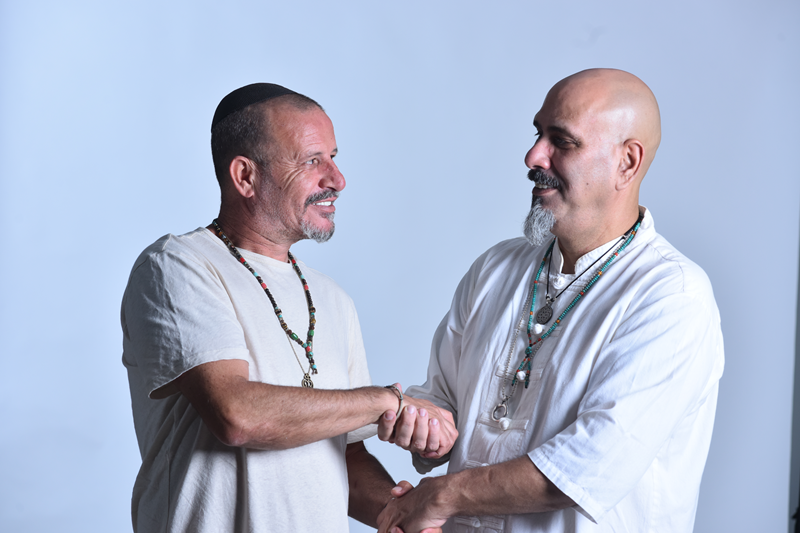
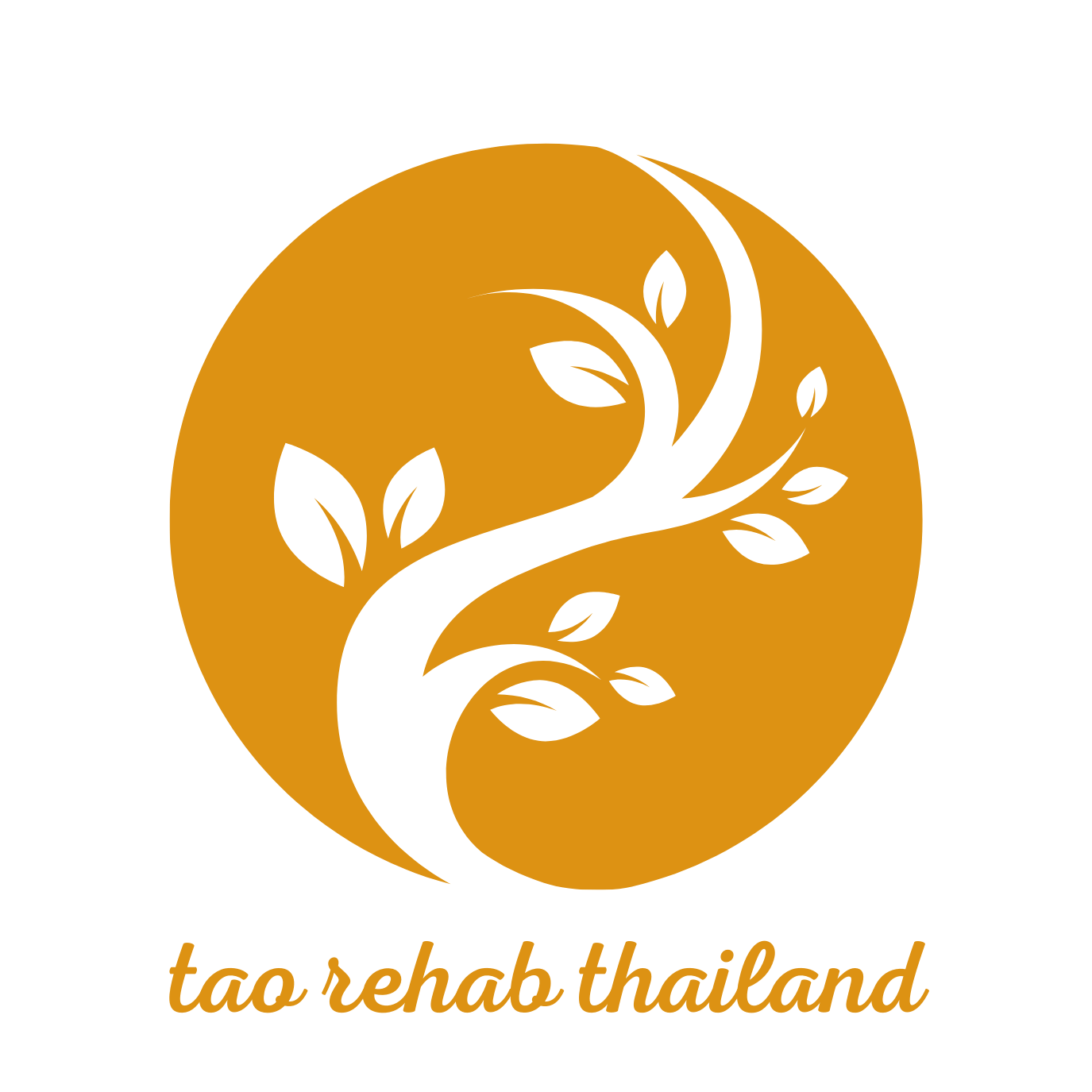
haven for those
seeking recovery
Nestled in the serene surroundings of Pranburi, Dao-Therapy Rehab offers a tranquil haven for those seeking recovery. Pranburi, with its stunning coastal views and peaceful atmosphere, is an ideal location for deep healing and transformation. Our center is designed to blend seamlessly with the natural beauty of the area, creating a serene environment where clients can focus on their recovery. At DaoTherapy Rehab, we combine the best of holistic therapies with the proven success of the 12 Steps program. Our team includes some of the most skilled therapists and practitioners, all dedicated to guiding our clients through their journey of healing. Surrounded by the calm of nature, clients benefit from a uniquely tailored program that addresses the physical, emotional, and spiritual aspects of recovery. Pranburi is not just a place to heal; it’s a place to renew, restore, and reclaim your life.





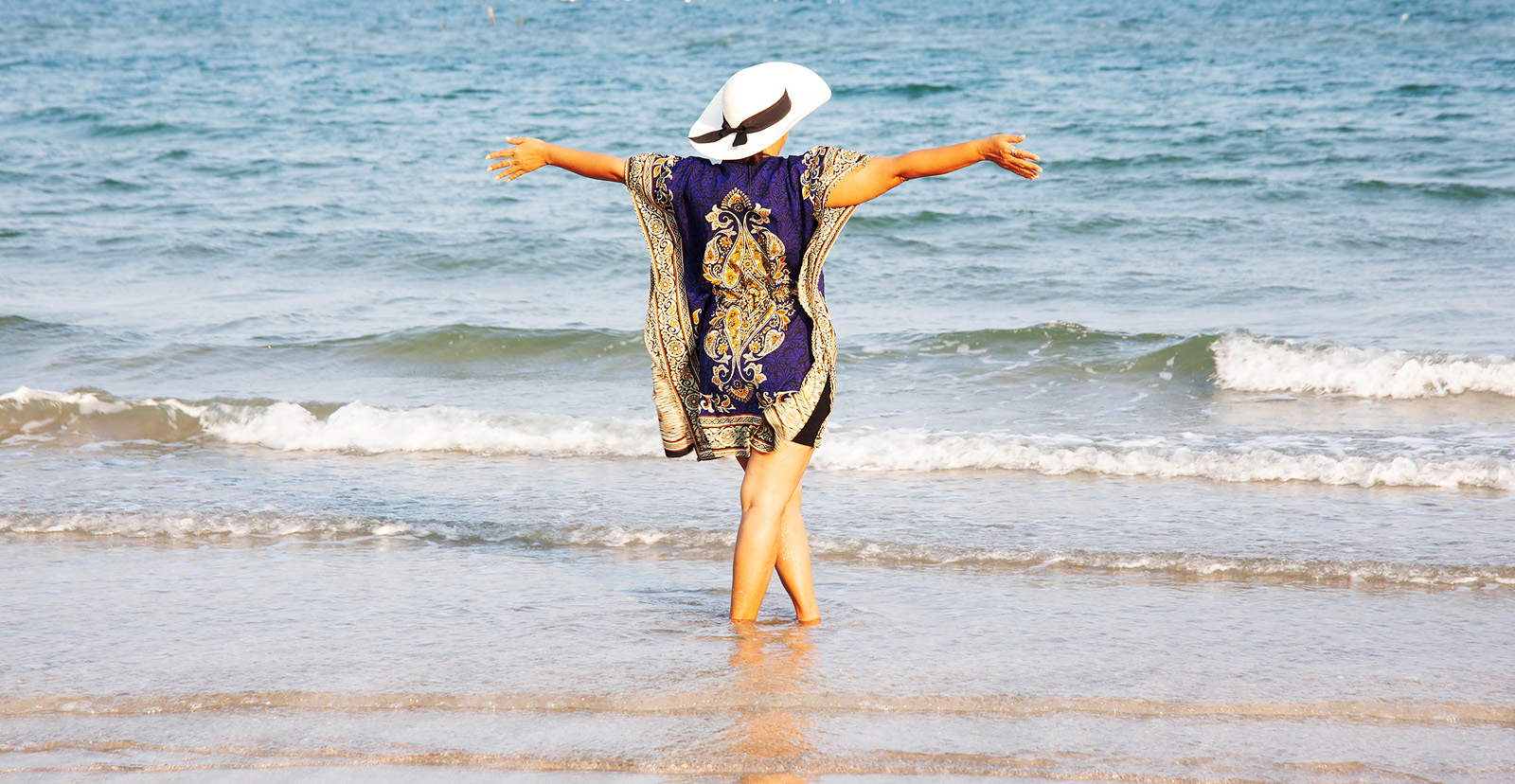
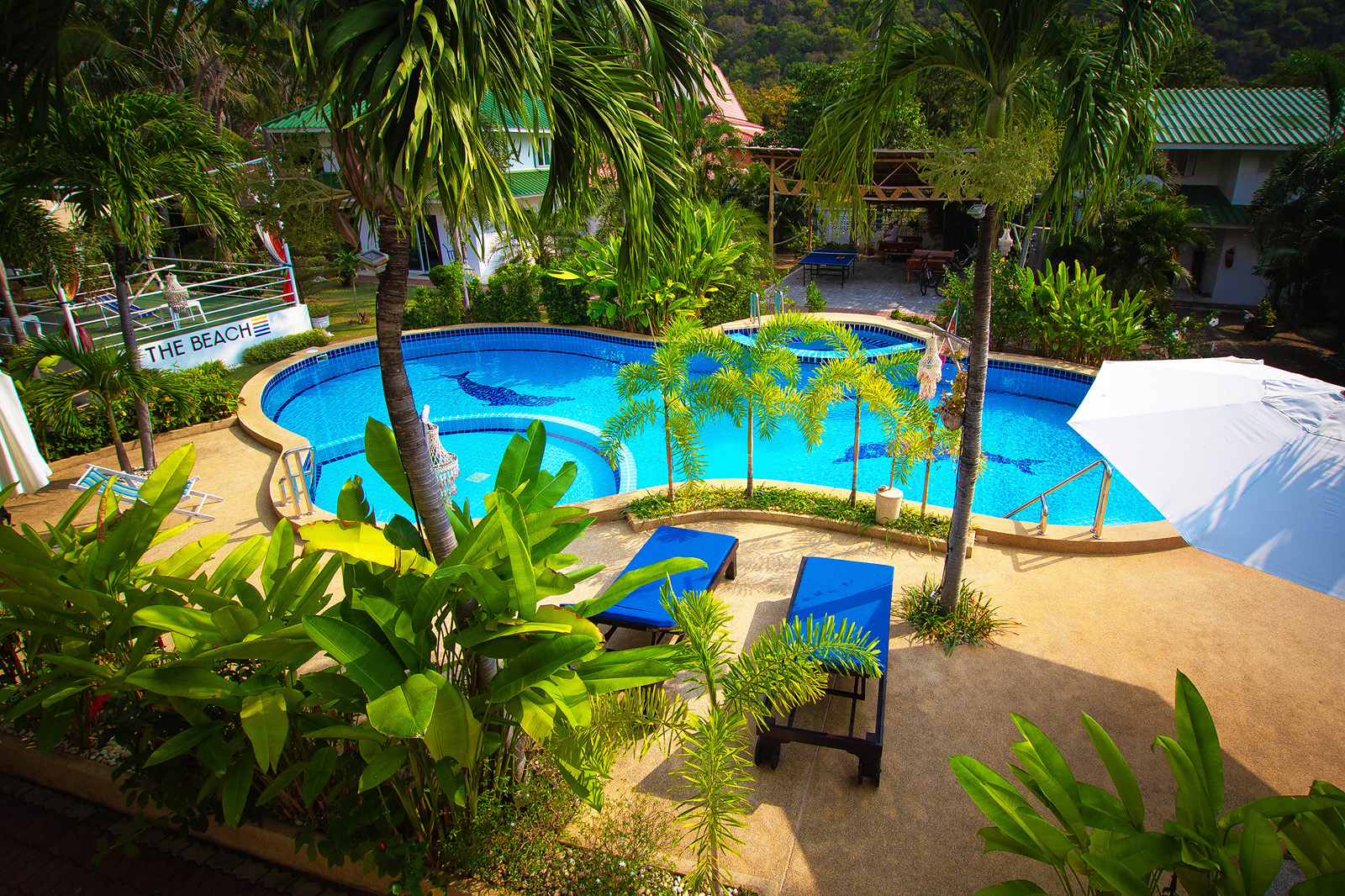
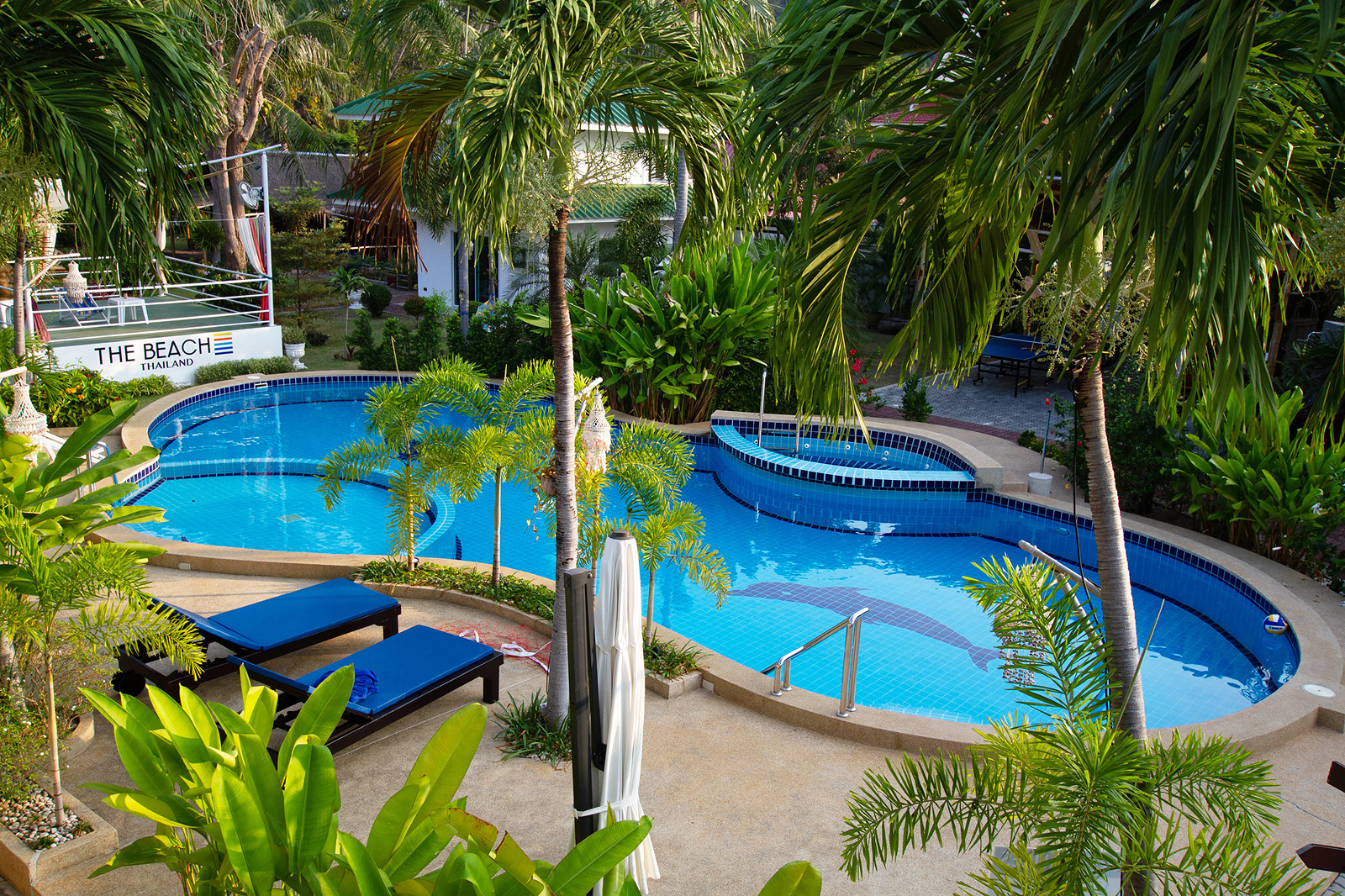

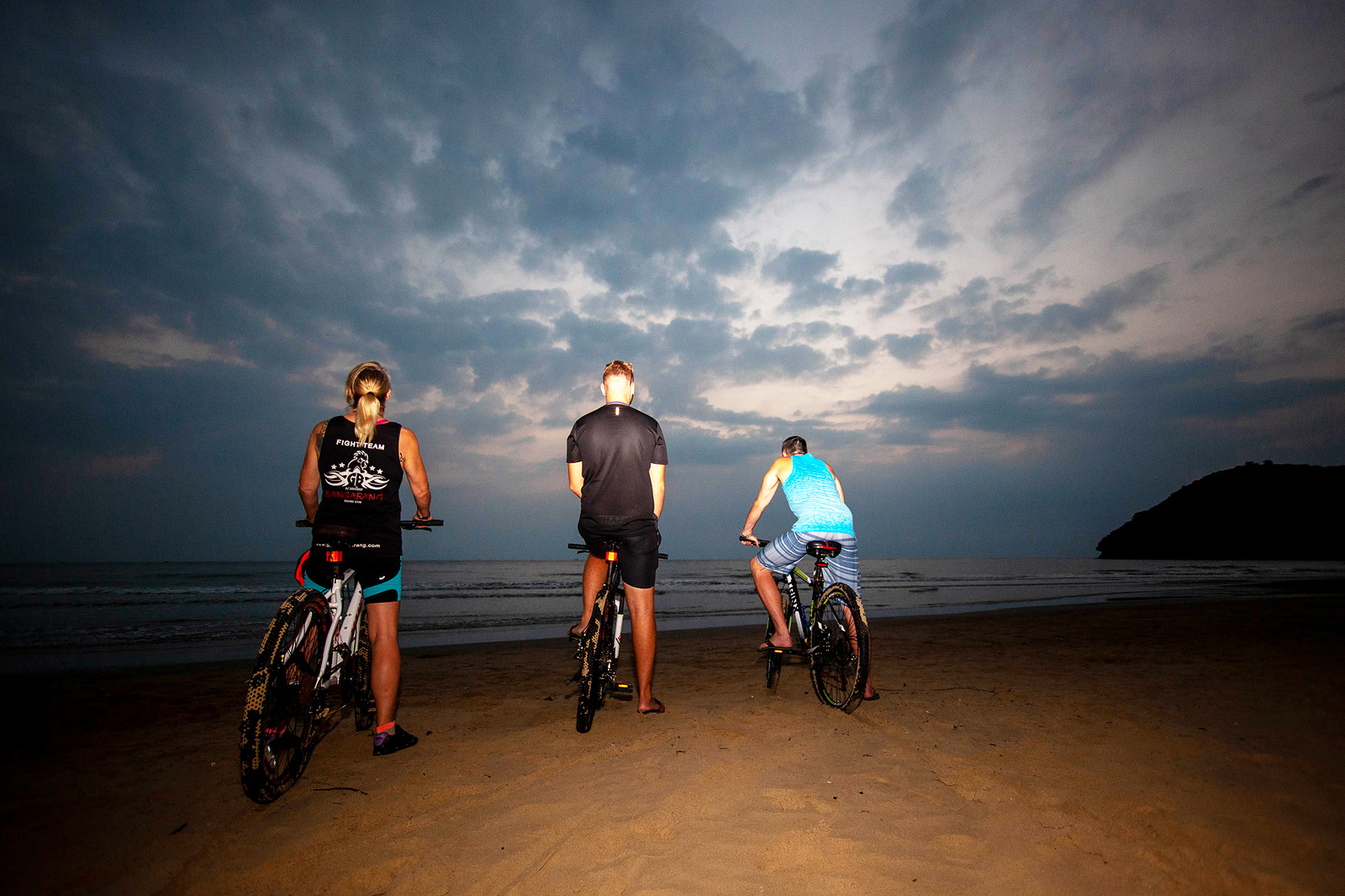

Comprehensive Treatment Programs
The rehab program and agenda are based on 33 years of experience by Dr. Mizrahi Avraham to provide a solid foundation and emphasis for a continuous recovery process
Individual Therapy Sessions
Kundalini Yoga for Trauma Recovery
Group Therapy Programs
Mindfulness and Meditation Practices
Individual Therapy Sessions:
Customized Physical Fitness
outdoor pool in tao rehab
12 steps program
The Special Meals at Dao Rehab
The healthy Thai cuisine at Dao Rehab is based on fresh and nutritious ingredients, aiding in the body’s recovery and supporting the rehabilitation process. The meals are tailored to the nutritional needs of the patients, providing essential energy and balance for recovery.
You ask, we answer
Here is a list of frequently asked questions that people might ask when they are interested in rehabilitation in general, as well as questions specifically related to the “Tao Rehab” center in Thailand:
At Tao Rehab, the rehabilitation process is holistic and tailored to each individual. We focus on treating not only the physical aspects of addiction but also the mental, emotional, and spiritual well-being. Our process includes comprehensive assessments, personalized treatment plans, and ongoing support, ensuring that each patient receives the most effective care for long-term recovery.
Tao Rehab stands out from other rehabilitation centers by offering a unique blend of traditional therapeutic approaches combined with holistic practices like meditation, yoga, and mindfulness. This integrative approach not only addresses the symptoms of addiction but also helps in healing the root causes, providing a more balanced and sustainable recovery.
Choosing Tao Rehab means choosing a center with a proven track record of success and a compassionate, experienced team. We are fully certified and adhere to the highest standards of care, ensuring that our patients receive the best possible treatment in a safe, serene environment that fosters healing and growth.
If you or a loved one is struggling with addiction and its effects on physical, mental, or emotional health, Tao Rehab offers a supportive and effective solution. We provide a safe space for individuals to confront their challenges and begin their journey toward recovery with the guidance of expert professionals.
Our treatment program at Tao Rehab includes a comprehensive range of services: medical detoxification, individual and group therapy, holistic treatments like acupuncture and massage, as well as life skills training and aftercare planning. This integrated approach ensures that patients are not only detoxed but also equipped with the tools they need to maintain sobriety.
Tao Rehab boasts a high success rate, thanks to our personalized treatment plans and continuous support even after patients leave the center. We emphasize long-term recovery, offering aftercare programs and ongoing counseling to help individuals stay on track. Many of our patients achieve lasting sobriety and lead fulfilling lives after their time with us.
While some may attempt to quit independently, the risks are significant, and the chances of relapse are high. Tao Rehab provides the structured environment, medical supervision, and psychological support necessary to make recovery more manageable and successful. Our team is here to guide you through every step, reducing the risks and increasing your chances of long-term success.
Tao Rehab is beautifully located in a serene and secluded area of pranburi Thailand, providing the perfect environment for recovery. The peaceful surroundings and natural beauty contribute to the healing process, allowing patients to focus fully on their recovery journey, away from the distractions and triggers of everyday life.
Tao Rehab offers comfortable and luxurious accommodations designed to support your recovery journey. Patients can choose between private rooms and shared spaces, all equipped with modern amenities. The environment is designed to be both therapeutic and comfortable, ensuring that patients feel at home while they focus on their healing.
Our treatment approach is comprehensive and holistic, combining evidence-based therapies with alternative practices like mindfulness and yoga. We believe in treating the whole person, not just the addiction, which is why our programs are designed to promote overall well-being and personal growth. This unique blend of therapies sets Tao Rehab apart from other centers.
The treatment program at Tao Rehab is all-inclusive, covering everything from medical detox to psychological therapy and aftercare planning. We offer individual therapy, group sessions, family counseling, and holistic treatments that address the body, mind, and spirit. Our goal is to provide a comprehensive path to recovery that addresses all aspects of addiction.
Our treatment team at Tao Rehab is made up of highly qualified professionals with extensive experience in addiction treatment and holistic therapies. They are compassionate, dedicated, and committed to helping each patient achieve lasting recovery. With a multidisciplinary approach, our team works together to provide personalized care that addresses every aspect of your well-being.
At Tao Rehab, we understand that recovery doesn’t end when you leave the center. That’s why we offer robust aftercare programs, including ongoing counseling, support groups, and regular check-ins. We also help connect patients with local resources and communities to ensure they have the support they need to maintain their sobriety long after their stay with us.
are you ready to wake up? Contact us today
“A person who suppresses his selfish desires and does what he must do, integrates in harmony on both axes: on the vertical axis – with life in its entirety and on the horizontal axis with every other individual being.”
2 Comments
Leave a Reply
You must be logged in to post a comment.











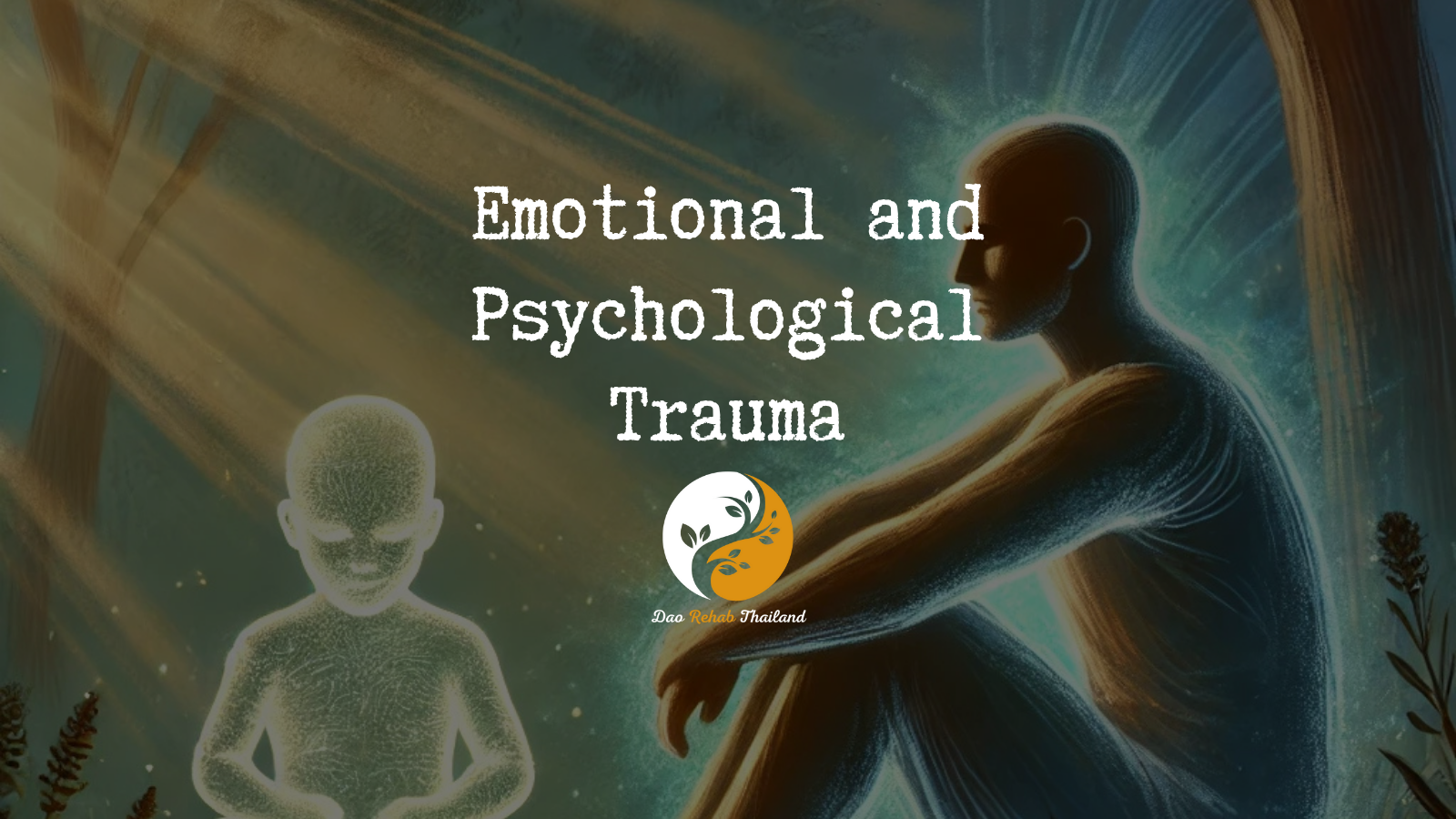
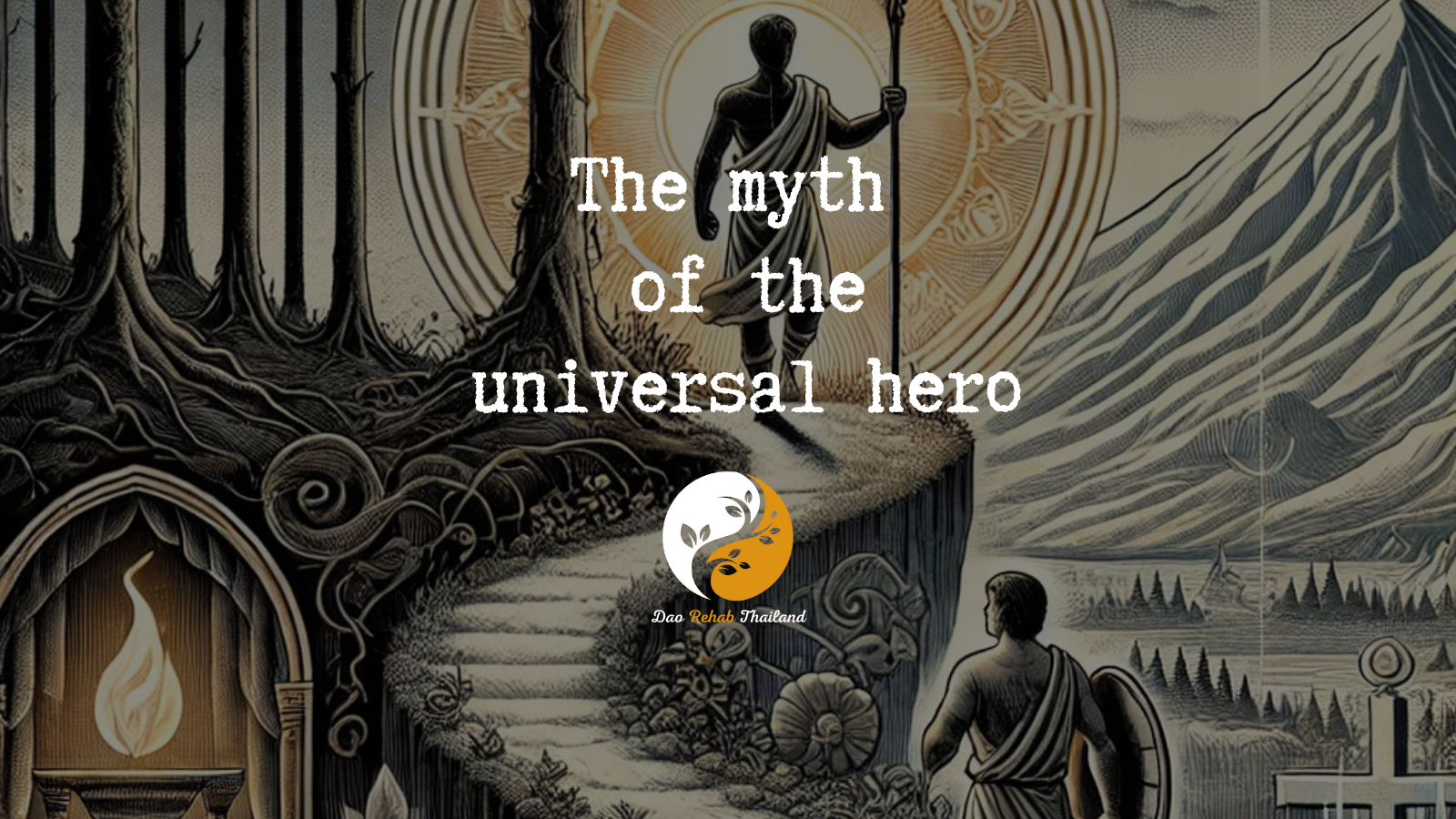
Pingback: Центр реабилитации Dao ведущий в Таиланде. - tao-rehab-Thailand
September 6, 2024